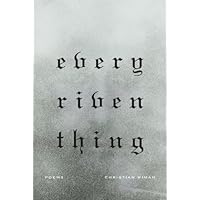Maya Angelou secretes wisdom. Time and again I read her and am gently rebuked for my unwisdom. "When we give cheerfully and accept gratefully, everyone is blessed". I've often thought about starting an anthology of Beatitudes. Not to replace or displace those of Jesus, but to expand them, expound them, and explain them. The best writers know about beatitude, and the wisest of them know that happiness happens, and is as much undeserved gift as achieved goal. The contemporary "O How happy are…" as an alleged improvement on "Blessed are", is redolent with the superficial, the self-concerned, as if hedonism is a good thing.
And beatitudes are not platitudes. They are wisdom statements, they indicate the life conditions under which happiness is more likely to flourish; they commend inner dispositions and outward actions that make us receptive to what comes our way, and to see it as blessing. The happenings of life are viewed through a specific lens, a sense of the mercy and love of God as pervasive, mysterious, uncontrollable, a very cataract of circumstance and happenstance that leaves us deluged in blessing.
It happened to Denise Levertov and she captured it in her poem "To live in the mercy of God"
To live in the mercy of God.
To feel vibrate the enraptured
waterfall flinging itself
unabating down and down
to clenched fists of rock.
Swiftness of plunge,
hour after year after century,
O or Ah
uninterrupted, voice
many-stranded.
To breathe
spray. The smoke of it.
Arcs
of steelwhite foam, glissades
of fugitive jade barely perceptible. Such passion –
rage or joy?
Thus not mild, not temperate,
God's love for the world. Vast
flood of mercy
flung on resistance.
The thunder of many waters, the diamond glinted spray of millions of litres, and the irridescence of constant, inexhaustible, life-giving liquid hurling downwards in a symphony of praise and splendour, is a powerful expression of the eternal mercy of God, in whose life and love we are each caught up. As Peter, an early exponent of the beatitudinal form wrote: "Blessed be the God and Father of our Lord Jesus Christ who in his great mercy has given us a new birth into a living hope through the resurrection of Jesus Christ from the dead…."
Surely goodness and mercy shall follow me all the days of my life…that is a beatitudinal worldview, and a call to a lifestyle in which, as Maya Angelou says, "we give cheerfully and receive gratefully….". Harder to find a more succinct description of the blessed life.

